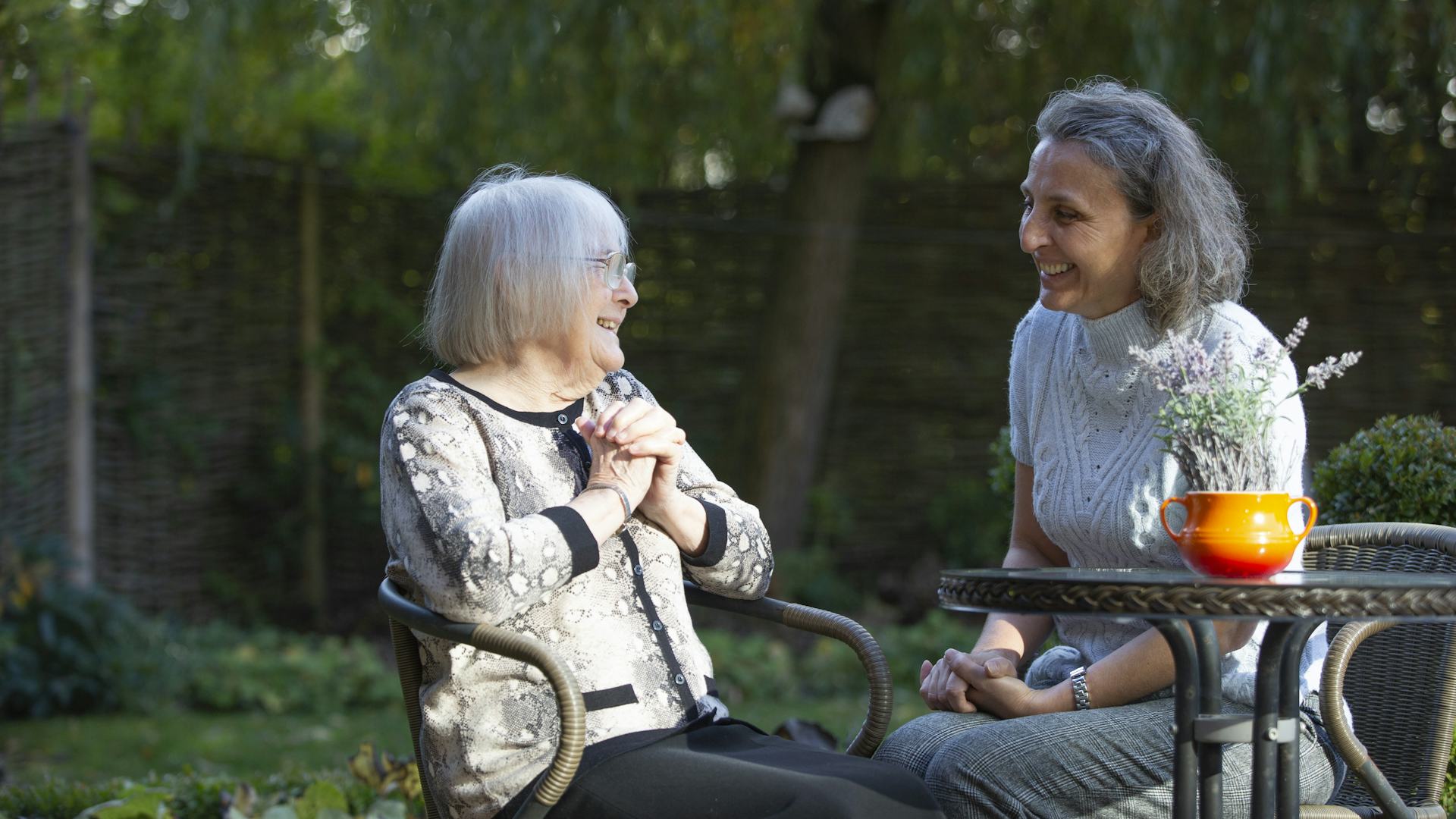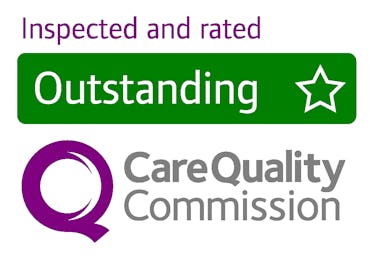What does domiciliary care involve?
There are times in our lives when we all need a little extra support. Domiciliary caregivers can help with most domestic tasks around the home, supporting those with health conditions requiring daily management, as well as offering companionship.
At Trinity Homecare, all of our home care services are personally tailored to our clients’ needs. We work with the family and any existing local health authority services to design a personalised care plan to ensure the best possible care is put in place.
Domiciliary care can involve:
- Personal care. Such as bathing, dressing and continence support.
- Managing medication. Help to administer medication and monitoring of a condition, such as checking blood pressure or insulin levels.
- Household tasks. Any reasonable help around the home from cleaning, tidying, doing the laundry, running errands or walking the dog.
- Meal preparation. Home-cooked meals to ensure nutritional needs are met on a daily basis.
- Clinical care. Support for existing health conditions such as dementia or palliative care.
- Mobility support. Help to move around the home safely to encourage physical activity and independence.
- Companionship. The friendship and reassurance offered by a regular home carer cannot be underestimated in helping to maintain a person’s well-being.
- Outings. Visits to the coffee shop or local stores, arranging and accompanying to appointments, or simply a trip to the park.

How much does domiciliary care cost?
If you or your loved one is considering domiciliary care you may be concerned about the potential cost. You will be reassured to know that the cost of visiting home care is very competitive when compared to care in a care home. Visiting home care is usually the same, or cheaper than residential care but with the added benefits of having personal one-to-one care in the comfort of one’s own home. Which for many people is priceless.
Because we create tailored care plans for all our clients’ prices and you can find out more on our cost of live-in care and cost of visiting care pages.
Why choose domiciliary care over a care home?
The main purpose of home care is to receive the level of support needed to continue living independently, safely and confidently at home. Many studies have shown that when people receive home care, as opposed to care in a residential care home, they are happier and healthier.
Home care allows you to maintain your independence in the surroundings that you know and love. Being able to keep routines and contact with much-loved friends, family and pets whilst giving you peace of mind that you are safe and well cared for. One other significant benefit that our clients love is the fact that home care is better value for money than a residential care home.
Here are some ways that choosing home care can benefit you or your loved one:
- Home is where the heart is. Maintaining independence in your own home allows you to continue living life the way you like it.
- Supporting independence. Continuing daily routines surrounded by the people and memories that you love in the community that you know.
- Personal one-to-one care. A tailored support package that suits you, giving you and your loved ones peace of mind that that you are safe and cared for.
- Reducing stress, vulnerability, and loneliness. Regular visits and the companionship offered by home carers nurture mental, physical and emotional well-being.
How to choose a domiciliary care provider
Choosing a domiciliary care provider can be daunting. If you’re new to home care services you may be feeling overwhelmed. It’s important to know what you should expect from a care provider so you can choose the best care for you or your loved one.
Here are some ways you can assess if a home care provider is right for you:

Safety
Are there enough staff to ensure you receive a reliable service that is not rushed? Do staff have the right mix of skills to make sure you are kept safe? Do carers protect your dignity and human rights, and respect you as an individual?

Effectiveness
Being introduced to any staff who will provide your care and knowing that they can provide the right care based on their knowledge, qualifications and skills. You are always asked for consent to care, treatment, and support and where appropriate your friends and family are also involved in decisions about your care. The staff know about your health needs and personal preferences. They regularly involve you in decisions about your care and treatment and give you as much choice and control as possible. You are regularly asked for feedback on the service and adjustments made when necessary.

Caring
Staff know about your background, likes, hopes and needs. This includes any needs you have because of your age, disability, sex (gender), gender identity, race, religion or belief, or sexuality. Staff treat you with dignity and respect. They have time to develop trusting relationships with you and are concerned for your well-being.

Responsive to needs
Your care, treatment and support are set out in a written plan that describes what staff need to do to make sure you receive personalised care. You, and your family and friends where appropriate, are actively involved in developing this plan and it reflects your personal choices. For example, you should be able to have a choice about who provides you with personal care, such as help with washing and dressing. If you have any concerns or complaints, staff always take them seriously, investigate them thoroughly and respond to them in good time.

Well managed
Staff know what is expected of them and are happy in their work and are supported by their managers. Staff and managers work effectively with others who may be involved in caring for you, such as your local council. Managers know what their responsibilities are and are always honest, including when things go wrong.
The Care Quality Commission
These are the criteria by which the Care Quality Commission (CQC) assess home care providers. The Care Quality Commission (CQC) is the independent regulator for all health and social care services in England.
Trinity Homecare is rated ‘Outstanding’ by the CQC for our services as a regulated care provider. only 4% of all domiciliary care providers in the country are rated ‘Outstanding’ by the CQC.
How to arrange domiciliary care
We know that navigating home care services can be confusing. That’s why at Trinity Homecare we’ve made it as easy as possible for you to explore our services and assess your needs with our confidential and no-obligation enquiry service.
Our dedicated and expert care management team are available every day from 7.30am to 5.30pm on 0207 183 4884 to take your calls. Whether it be a simple question or a request for assessment, we’re here to assist you in making your home care choice with all the information and time you need. If you would rather, you can contact us via our contact form.
After the assessment visit, a personalised care plan will be created for you based on your needs and wishes. If you choose to make Trinity Homecare your chosen provider we will put in place your care package quickly and efficiently, and are continually monitoring the service and ready to make adjustments where needed.
Whatever your home care requirements, we are confident that with our professional knowledge and experience, we can provide the care you need.


















